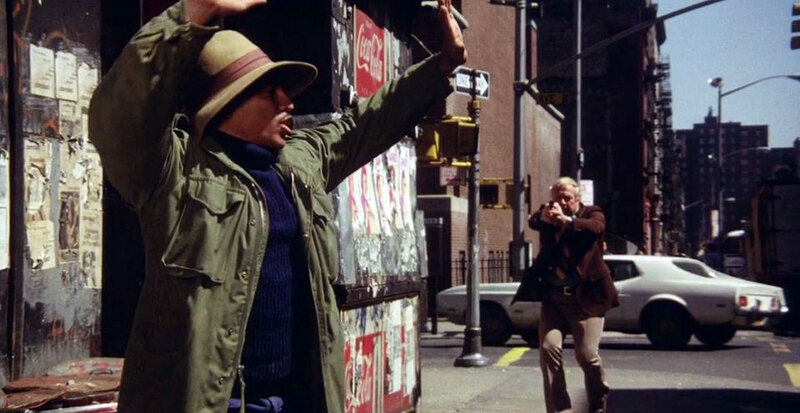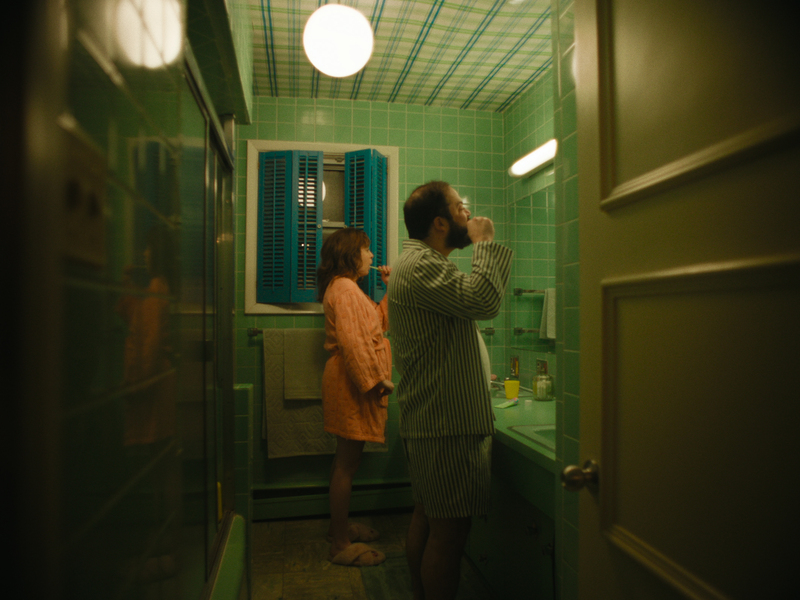
A Murder Mystery Wrapped in Postwar Shadows
MOVIE REVIEW
Proof Of The Man [Limited Edition]
–
Genre: Crime, Drama, Mystery
Year Released: 1977, Arrow Video Blu-ray 2025
Runtime: 2h 12m / 1h 40m
Director(s): Jun’ya Satō
Writer(s): Zenzo Matsuyama, based on the novel by Seiichi Morimura
Cast: Yūsaku Matsuda, George Kennedy, Mariko Okada, Toshiro Mifune, Joe Yamanaka, Broderick Crawford, Rick Jason
Where to Watch: available September 9, 2025, pre-order your copy here: www.arrowvideo.com/, www.mvdshop.com, or www.amazon.com
RAVING REVIEW: The late 1970s marked a turning point in Japanese cinema. “Movie mogul” Haruki Kadokawa, eager to redefine how movies were made and sold, pushed the idea of the homegrown blockbuster—spectacle, international stars, and a marketing blitz that rivaled Hollywood. PROOF OF THE MAN, directed by Jun’ya Satō and adapted from Seiichi Morimura’s best-selling novel, arrived in 1977 as one of those tentpoles. A murder mystery on its surface, the film also serves as an excavation of postwar trauma, posing uncomfortable questions about race, identity, and the lasting scars of occupation.
The story begins with the brutal stabbing of Johnny Hayward (Joe Yamanaka, frontman of the Flower Travellin’ Band), a young man of mixed heritage who leaves Harlem for Tokyo only to end up dead in the elevator of a luxury hotel. His dying words—“Straw hat”—become a haunting refrain, a clue that points toward a powerful fashion family. The mother, Kyoko (Mariko Okada), is a celebrated designer married to Yohei (Toshiro Mifune), a politician with deep connections. Their son, meanwhile, flees after a hit-and-run that same night, entangling the family in scandal. Enter Detective Munesue (Yūsaku Matsuda), whose search for answers leads him across the Pacific to New York, where he teams up with Detective Ken Shuftan (George Kennedy), an American cop with his own history tied to Japan.
PROOF OF THE MAN plays like a classic international police procedural. It weaves between Japan and the United States, shifting from neon-lit Tokyo to the gritty streets of Harlem. Satō’s pacing leans heavily into the 1970s appetite for sprawling mysteries—extended fashion show sequences, nightclub detours, and brooding police exchanges fill out the film’s hefty runtime. For some, this extra filler dulls the tension. There are stretches where the narrative stalls, the investigation bogged down in repetition. Yet even here, the film feels purposeful. The endless fashion pageantry and nightclub sequences underline a society obsessed with appearances, where glamour conceals deep-rooted shame.
It’s the film’s subtext, though, that sets it apart from standard thrillers of the time. Beneath the whodunnit structure lies a study of mixed-race identity in postwar Japan. Johnny’s very existence—as the son of a Black GI and a Japanese woman—speaks to a generation born of occupation, often marginalized, invisible, or treated as stains on the nation’s self-image. His murder is not just a crime; it’s an erasure. Through Detective Munesue’s backstory and his partnership with Kennedy’s Shuftan, Satō explores a shared wound between nations—Japan’s struggles with discrimination and America’s legacy of exploitation during its military presence in the country.
Yūsaku Matsuda brings a restless intensity to Munesue, embodying a detective driven as much by personal demons as by duty. His charisma commands the screen, turning moments of procedural drudgery into character studies of obsession. George Kennedy, fresh off Hollywood hits like AIRPORT and THE DIRTY DOZEN, brings credibility to the international angle, his weathered role both a foil and a mirror to Matsuda’s character. Mariko Okada delivers one of the film’s most haunting turns as Kyoko, a woman whose career and family reputation mask a history she cannot suppress. In a smaller role, Toshiro Mifune lends gravitas as the politician husband, although the script uses him sparingly.
Stylistically, Shinsaku Himeda’s cinematography situates the film within the aesthetics of the 70s. Tokyo and New York feel lived-in, dirty, and morally compromised, more kin to THE FRENCH CONNECTION than a standard studio thriller. Yuji Ohno’s score, highlighted by Joe Yamanaka’s melancholic theme song, threads the mystery with a sense of loss. It’s no surprise that Arrow Video’s new 4K restoration emphasizes these textures, preserving the raw grain and color that ground the film in its era.
Certain characters—especially Johnny himself—feel more symbolic than fleshed out, their tragedy serving the plot rather than being explored on its own terms. And while the film addresses racial prejudice, its perspective is not free from dated tropes; American characters often lean on stereotypes, undercutting some of the nuance Satō strives for. The ambition is undeniable. PROOF OF THE MAN aimed to be more than just entertainment—it wanted to confront a nation’s uneasy relationship with its past, using the framework of a murder mystery to do so. Decades later, that makes it both fascinating and frustrating: a crime thriller that is equal parts gripping, messy, and socially charged.
Arrow Video’s release ensures the film reaches international audiences in its intended scope, complete with commentary and essays that provide context for its historical significance. For viewers, it’s an opportunity to experience one of Japan's boldest takes—a film that doesn’t always hit but always aims high. It stands as a flawed but vital piece of 70s cinema—sprawling, provocative, and unwilling to look away from wounds that were never fully healed.
Bonus Materials:
LIMITED EDITION CONTENTS
High-Definition (1080p) Blu-ray presentation
Original lossless mono audio
Optional newly translated English subtitles
Brand new audio commentary with Asian American film scholar Rob Buscher and DJ Skeme Richards
Taking the Big Apple, a brand new video introduction by Asian film scholar Earl Jackson
A Japanese Blockbuster, a brand new filmed discussion with critics and Junya Sato biographers Tatsuya Masuto and Masaaki Nomura
Original theatrical trailers
Image gallery
Reversible sleeve featuring original and newly commissioned artwork by Tony Stella
Illustrated collector’s booklet featuring new writing by film critic Michelle Kisner and scholar Alexander Zahlten
Please visit https://linktr.ee/overlyhonestr for more reviews.
You can follow me on Letterboxd, Instagram, Twitter, and YouTube. My social media accounts can also be found on most platforms by searching for 'Overly Honest Reviews'.
I’m always happy to hear from my readers; please don't hesitate to say hello or send me any questions about movies.
[photo courtesy of ARROW VIDEO, MVD ENTERTAINMENT]
DISCLAIMER:
At Overly Honest Movie Reviews, we value honesty and transparency. Occasionally, we receive complimentary items for review, including DVDs, Blu-rays, CDs, Vinyl Records, Books, and more. We assure you that these arrangements do not influence our reviews, as we are committed to providing unbiased and sincere evaluations. We aim to help you make informed entertainment choices regardless of our relationship with distributors or producers.
Amazon Affiliate Links:
Additionally, this site contains Amazon affiliate links. If you purchase through these links, we may receive a commission. This affiliate arrangement does not affect our commitment to honest reviews and helps support our site. We appreciate your trust and support in navigating these links.



Average Rating